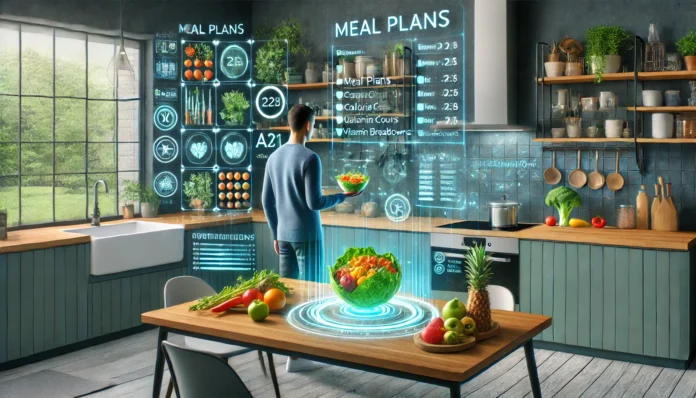The saying “You are what you eat” has taken on a new dimension with the advent of Artificial Intelligence (AI). Personalized nutrition, a field that tailors dietary recommendations to individual needs, is leveraging AI to create customized solutions for healthier eating. By analyzing a combination of genetic, lifestyle, and health data, AI-powered systems are revolutionizing how people approach their diets, paving the way for smarter and more sustainable food choices.
The Science Behind Personalized Nutrition
Personalized nutrition goes beyond generalized dietary advice, such as eating more fruits or reducing sugar intake. Instead, it accounts for unique factors like an individual’s metabolism, allergies, gut microbiome, and even genetic predispositions. AI plays a central role in this process by synthesizing vast amounts of data to provide actionable insights.
How AI Powers Personalized Nutrition
1. Analyzing Genetic Data
AI algorithms analyze DNA to identify genetic markers associated with nutrient absorption, food sensitivities, and disease risks. For example:
- NutriGenome: This AI-powered service uses genetic testing to recommend diets that align with an individual’s DNA profile.
2. Monitoring Lifestyle Habits
Wearable devices like Fitbit and Apple Watch collect data on physical activity, sleep patterns, and caloric expenditure. AI integrates this information with dietary habits to refine nutritional recommendations.
3. Gut Microbiome Insights
The gut microbiome plays a significant role in health and nutrition. AI analyzes gut bacteria profiles to suggest diets that promote gut health, as seen with services like DayTwo, which provide meal plans based on microbiome composition.
Applications of AI in Personalized Nutrition
1. Meal Planning and Recipe Suggestions
AI-powered apps like Yummly and EatLove create personalized meal plans based on dietary preferences, allergies, and health goals. They also adapt recommendations as users log meals or report changes in preferences.
2. Real-Time Nutritional Feedback
AI systems like Foodvisor use image recognition to analyze photos of meals, providing instant feedback on calorie counts, macronutrient breakdowns, and portion sizes.
3. Disease Prevention and Management
For individuals with chronic conditions like diabetes or heart disease, AI tailors dietary interventions to manage symptoms and reduce risks. Tools like Lumen help users optimize their metabolism through real-time monitoring and meal adjustments.
Challenges and Ethical Concerns
Despite its promise, AI-driven personalized nutrition faces challenges:
- Data Privacy: Users may hesitate to share sensitive health and genetic data due to privacy concerns. Ensuring robust data security measures is critical.
- Access and Affordability: Personalized nutrition services often come with high costs, limiting access for underserved populations.
- Over-Reliance on Technology: Excessive dependence on AI recommendations may overshadow intuitive eating or culturally significant food practices.
The Future of AI in Nutrition
As AI becomes more sophisticated, its role in personalized nutrition will expand:
- Integration with Healthcare: AI can seamlessly integrate with electronic health records, allowing dietitians and healthcare providers to make more informed recommendations.
- Enhanced Predictive Models: Future AI systems could predict long-term health outcomes based on current dietary habits, offering preventative guidance.
- Sustainability Focus: AI can promote sustainable eating by suggesting diets that are both environmentally friendly and nutritionally balanced.
Conclusion
AI is transforming personalized nutrition from a niche concept into a practical tool for improving health and well-being. By harnessing the power of machine learning, individuals can make smarter, data-driven food choices tailored to their unique needs. While challenges remain, the potential for AI to revolutionize how we eat is undeniable, paving the way for a future where nutrition is both personalized and proactive.





